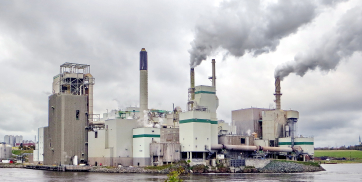- Education
Methane education built for O&G operators
Regulation-aligned courses that build internal literacy, cut compliance risk, and empower teams from field techs to executives.


- Education
Methane education built for O&G operators
Regulation-aligned courses that build internal literacy, cut compliance risk, and empower teams from field techs to executives.
Featured course
Preparing for EUMR and OGMP 2.0 Compliance

Thomas Fox
President, Highwood Emissions Management
Learn what the EU Methane Regulation means for O&G producers — and how to meet reporting standards without the legal jargon.
- Understand the core requirements of OGMP 2.0 and the EUMR
- Apply best practices for methane reporting readiness
- Understand the core requirements of OGMP 2.0 and the EUMR

Explore our course catalog
Our on-demand and live training programs are designed for professionals in operations, ESG, compliance, and emissions management. Click any course title to learn more.
On-demand
Fundamentals of Methane Emissions Management Part 1: Sources and Estimation
Thomas Fox
Delve into the basics of methane emissions, covering sources, methane properties, estimation techniques, independent research, bottom-up inventories, and methane reconciliation.
Fundamentals of Methane Emissions Management Part 2: Mitigation and Innovation
Thomas Fox
Building on Part 1, expand your knowledge of methane management drivers and policies, mitigation tools and techniques, advancements in software and modeling, and future trends.
Preparing for EUMR and OGMP 2.0 Compliance
Thomas Fox
Learn what the EU Methane Regulation means for O&G producers — and how to meet reporting standards without the legal jargon.
Live
Custom training for teams
Highwood delivers tailored training programs aligned with your operational goals, regulatory requirements, and voluntary initiatives. We support internal asset teams in understanding objectives, developing implementation plans, and engaging stakeholders, including Non-Op JV partners.
Custom content areas include
- Measurement-informed inventories
- OGMP 2.0, MiQ, and Veritas reporting
- U.S., Canadian, and EU methane regulations
Choose virtual or in-person sessions, and equip your team with the knowledge to lead.
Training partner

Highwood is proud to partner with SAGA Wisdom, a leading provider of enterprise-level online continuing education for the energy sector.
Through this partnership learners gain on-demand access to Highwood’s courses — industry-leading methane emissions training — purpose-built for oil & gas professionals.
- Get started
Let’s get your methane reporting ready for what’s next.
Let’s tackle your emissions challenges together — through education, not just compliance.
Methane Detection and Quantification Technologies Part 1: Technology Deep-Dive
Brendan Moorhouse
Learn about the cutting-edge technologies used for detecting and quantifying methane emissions in the oil and gas industry, including handheld methods, aircraft, satellites, drones, trucks, and continuous monitoring.
Methane Detection and Quantification Technologies Part 2: Advanced Applications
Thomas Fox
Explore how advanced technologies are used, including how performance evaluation is performed, simulation of technology performance, and how emission rate data can be used to drive better decision making.
Methane Reconciliation Part 1: Introduction
Jeff Rutherford
Learn the fundamentals of methane reconciliation, examining the process of identifying, quantifying, and resolving discrepancies in emission estimates.
Methane Reconciliation Part 2: Advanced Topics
Jeff Rutherford
Master advanced reconciliation techniques, including statistical analysis, uncertainty estimation, and integrating data from multiple sources for comprehensive emission management.
Methane Sources and Mitigation Options
Jessica Shumlich
Identify key methane emission sources in the oil and gas industry and explore a range of mitigation strategies, from technology adoption to operational improvements.
Methane Regulations in the United States
Chris Nixon
Navigate the complex landscape of methane regulations in the U.S., understanding compliance requirements, reporting obligations, and compliance measures like the methane tax.
Voluntary Initiatives and Emissions Certifications
Jessica Shumlich
Explore voluntary programs and certification schemes aimed at incentivizing and rewarding methane emission reductions, including industry-led initiatives and third-party verification processes.
Achieving the OGMP 2.0 Gold Standard
Chelsea Goral
Learn how to meet the rigorous criteria set by the Oil and Gas Methane Partnership (OGMP) 2.0 for achieving Gold Standard status in methane emission management.
Methane Detection Simulation and Forecasting
Brendan Moorhouse
Harness the power of simulation and forecasting techniques to anticipate methane emission trends, optimize monitoring strategies, forecast uncertainties, and enhance proactive mitigation efforts.
The Value of Methane Mitigation
Jessica Shumlich
Explore the financial implications of methane mitigation, analyzing cost-benefit considerations, investment strategies, and economic incentives for reducing emissions in the oil and gas industry.

